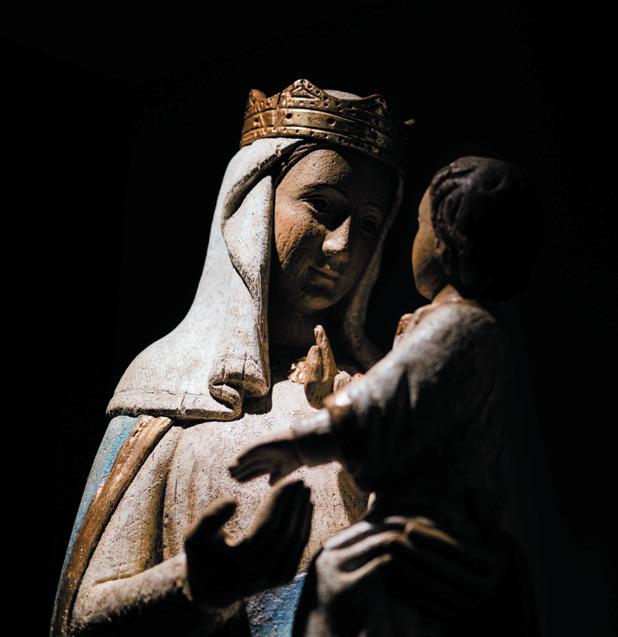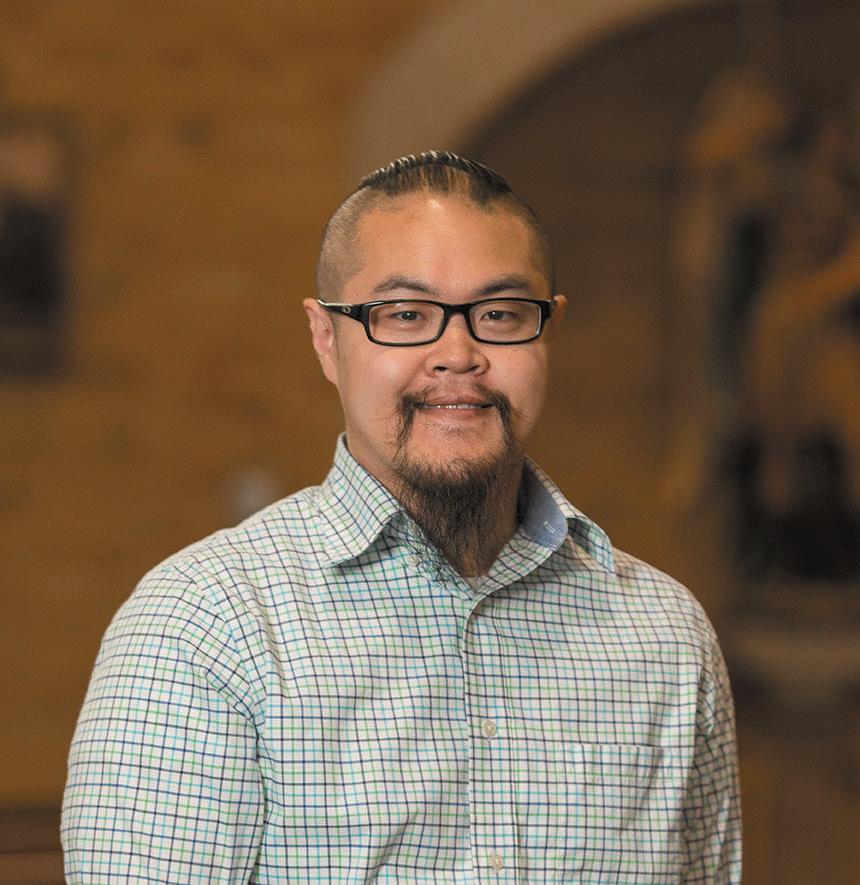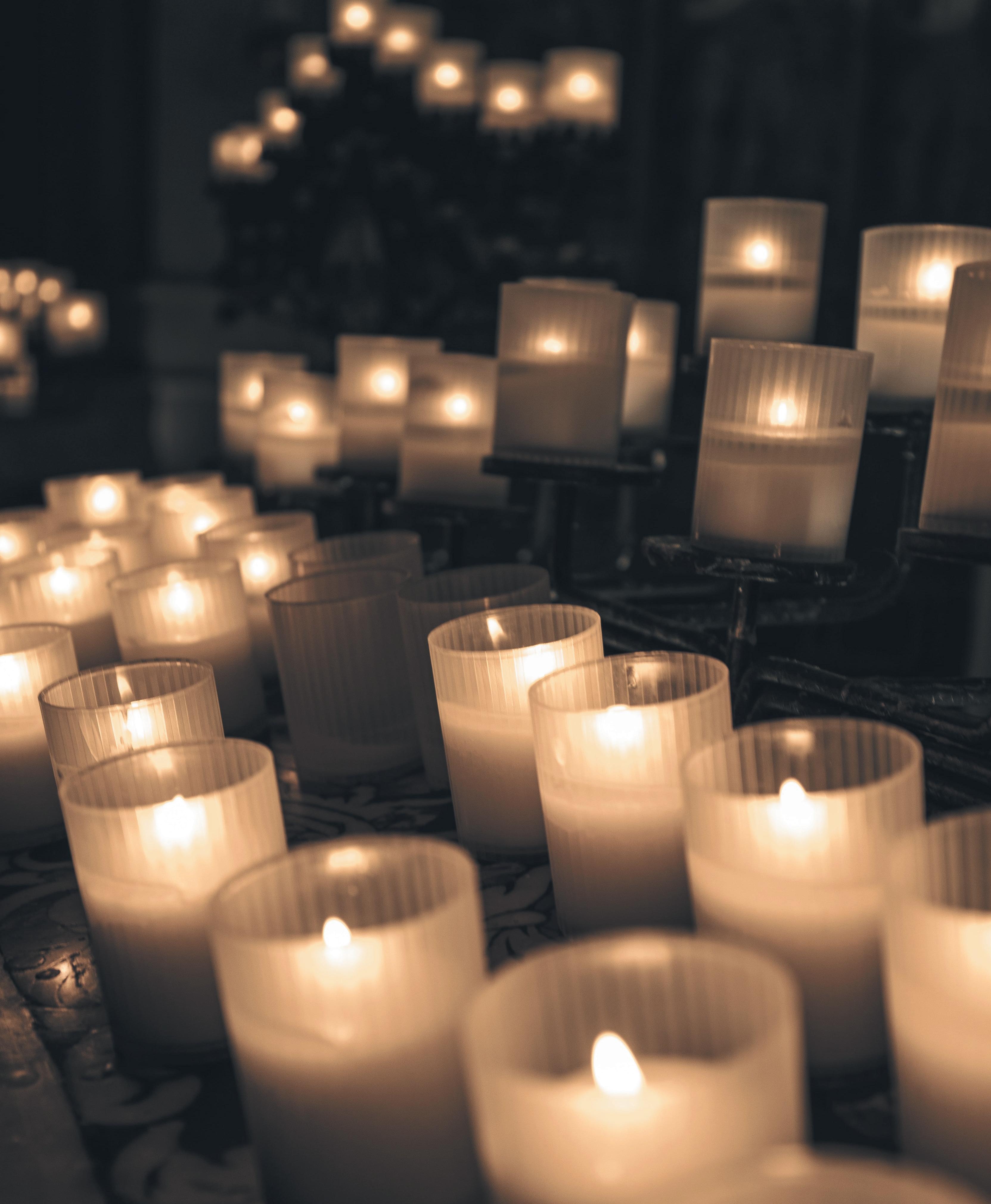
4 minute read
A RULE OF LIFE
BEN POHL
As I sat in the convent parlor, finishing my interview with the sisters, I watched as the novices slowly made their way into the chapel. A bell soon rang for Evening Prayer and my time was up. As I said my goodbyes and walked home, I considered the beauty of the sisters’ vow of obedience. The vow is certainly made to Christ and their order’s superiors. But in a special way this counter cultural vow is fulfilled by the daily obedience to a rule of life that constrains in order to make free.
Advertisement
The Dominican Sisters of Mary, Mother of the Eucharist here at Resurrection begin a typical day at 5:00 am when they rise and prepare for their Holy Hour with the Lord. After Mass and breakfast, they’re off to Resurrection School and Lansing Catholic High School. “We hear so often in our formation that ‘you can’t give what you don’t have,’” remarks Sr. James Karol as she considers the apostolic impact of their morning routine. “If you don’t already have that relationship within, then you wouldn’t be able to bring it to your students.”
When they return home, they make a visit to our Lord in the convent chapel and take time to cook, socialize, and complete household chores. Each time the sisters arrive at or depart from the convent, or Lansing Catholic, they make a brief visit to our Lord, making tangible the words of the Psalmist, “The Lord will watch over your coming and going” (Ps 121:8).
At 5:00 pm the sisters follow the sound of the bell into the chapel for Evening Prayer and their daily Rosary. After dinner and recreation the day begins to wind down at 7:30 pm with spiritual reading and Night Prayer. Each sister then takes time for personal prayer and makes her preparations for the coming day before silence at 10:00 pm. Their daily schedule is punctuated by bells in the way of monastic life, from morning until night. “We have a lot of bells in our life,” Sr. Mary André shares, with a laugh, “But on Good Friday and Holy Saturday we don’t ring bells, even for prayer.”
The sisters return to the Mother House in Ann Arbor for the Triduum, and experience together the hushed time after Good Friday and before Easter. All this waiting leads to great joy in the celebration of our Lord’s Resurrection at the Easter Vigil. “When the bells come back,” recalls Sr. Mary Lawrence with excitement, “it’s a really big deal at the Mother House. [During the Gloria] two sisters get to ring the really big bell in the bell tower… and you need two sisters to ring this thing!”
The rhythm of the liturgical year is marked not only by sounds but also sights and tastes! Each Holy Week they wear black before shedding it for the celebration of Easter. The black of this seasonal garb is how the Dominican order received the nickname “Blackfriars.” Their chapel changes throughout the liturgical year as they adorn it with flowers for feast days, while also feasting at meals times with special treats. On the weekends the sisters have extra time for recreation, which they spend playing board games, cards, engaging in arts and crafts, or taking a long walk together. Sr. Mary André loves a walk to the duck ponds in Groesbeck neighborhood, and Sr. Mary Lawrence enjoys time spent on the Lansing River Trail. “We had a great game of 3on3 [basketball] yesterday,” shares Sr. Mary André – a nice perk of having novices in town.

The rule of life of the Dominican Sisters of Mary, Mother of the Eucharist draws them into a deeper relationship with the Lord and with each other, while also allowing them to fulfill their mission to preach to the next generation (the Dominicans are the “Order of Preachers” after all). But their regimented life is not structured simply to allow them the time to preach and teach, or even to do so more effectively. Here Sr. Mary Lawrence provides a deeper understanding of their apostolate: “We have an opportunity to practice our spiritual motherhood because, especially for me, I literally look at the school from my [seat] in the chapel… my [bedroom] looks directly at the school, so I’m constantly reminded that I’m here… for all those God puts in my path.” Further, their schedule of frequent prayer reflects their vocation of spiritual motherhood. As Sr. Mary André sees it, “The apostolate of prayer is probably our primary ministry…our fidelity to prayer in some ways mirrors the fidelity of moms [who] get up in the middle of the night for their kids.”
As I arrived home that evening after my interview with the sisters I felt compelled to pause and pray the Angelus, thanking God for the witness of these spiritual mothers and all who respond to Lord’s call in this way. Their lives are a sign for me of the Kingdom of God and the holiness for which we have all been made. St. Dominic and Mary, Mother of the Eucharist, pray for us.










